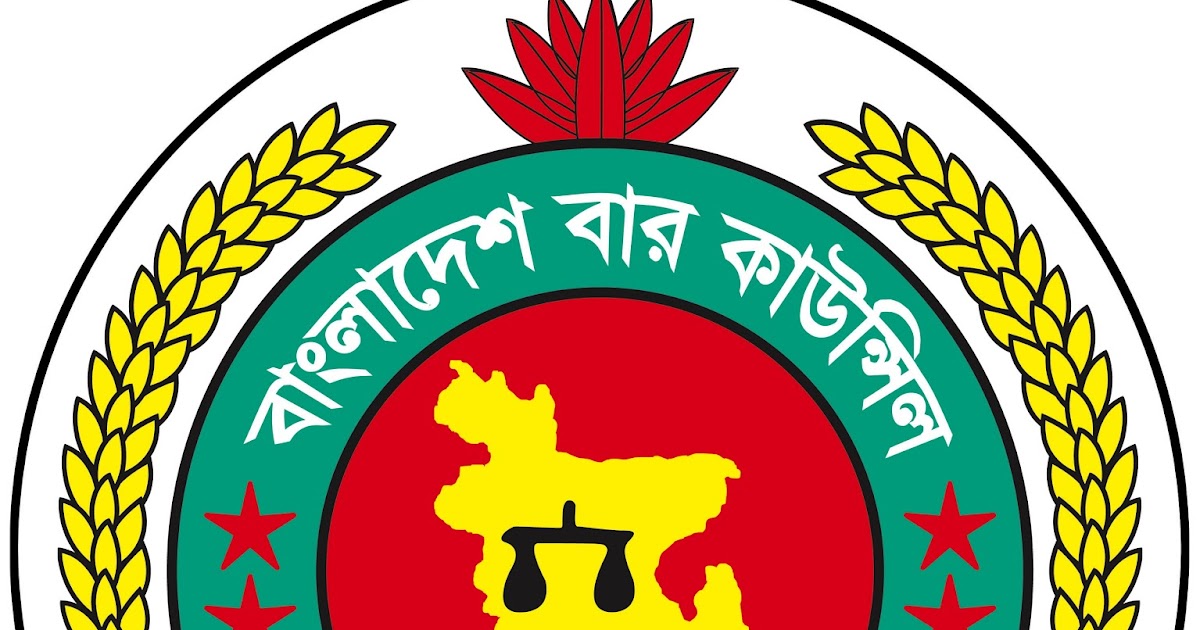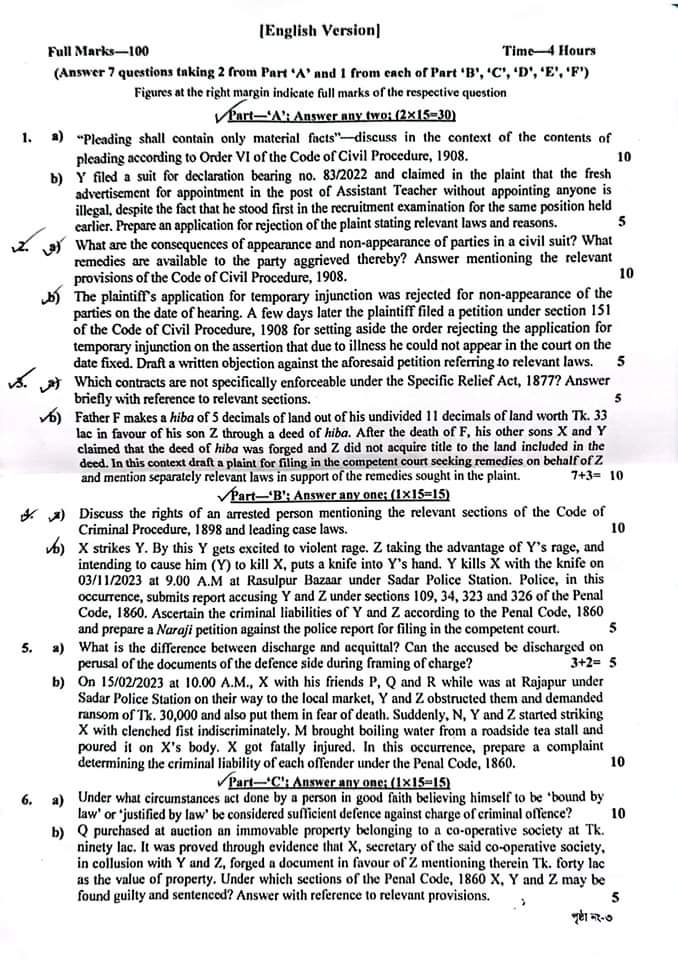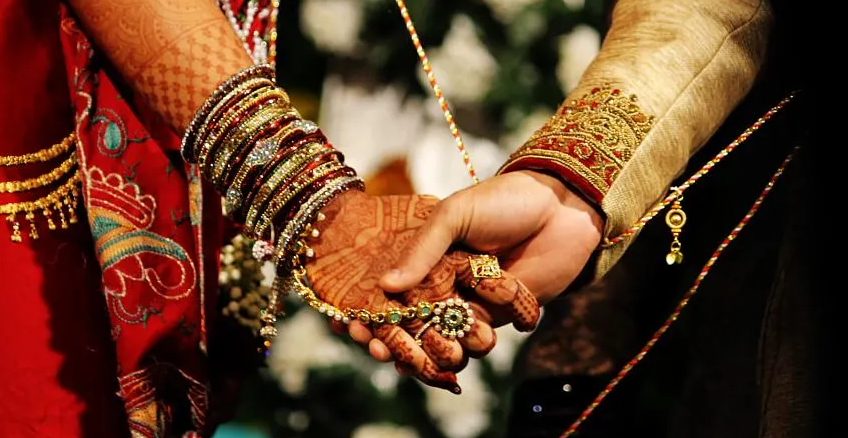Maintenance of Wife under Muslim Law in Bangladesh
Introduction: Under Islamic Law some significant rights and obligations are solely dependent on a valid marriage. Muslim women's right to maintenance is one of those rights.
"Men are the protectors and maintainers of women, because Allah has made one of them to excel the other, and because they spend (to support them) from their means."
Maintenance: The word 'maintenance' is interchangeable with Arabic word 'nafaqa' which means 'something that is spent for family'1. Maintenance means and includes everything which is necessary for leading life. Generally, maintenance includes three necessary things such as food, clothing and lodging.2 Prominent authors of Muslim Family Law define maintenance as follows-
- Hedaya, a famous Hanafi Book defines maintenance as "all those things which are necessary to the support of life, such as food, cloths and lodging, many confine it solely to food".
According to Mulla, "Maintenance includes food, raiment and lodgings."
In the above definitions it is tried to give a list of maintenance but it is hard to make a comprehensive list. Meaning of maintenance may vary case to case because expensive shopping or expenses for enjoying holidays may be necessary for one person and others may be happy living with only food, cloth, accommodation and medication. Though Maintenance primarily means foods, clothes, medication and accommodation, it cannot be limited to these basic needs of a person. Rather, it includes everything that is necessary to live a standard life according to economic condition and social status of husband and wife.
Even some authors argue that the husband is under obligation to provide maintenance which is ready for consumption.3 For example, cooked food, stitched clothing and separate residence may be included as maintenance.4
However, if we talk about the scale of maintenance, it will depend on individual fact. The amount will be fixed on the basis of economic condition of husband and social status of wife.
Source and Nature of Women's Right to Maintenance:
Whenever a valid marriage is concluded under Islamic law, the husband has to maintain his wife according to his means. To ensure the right to have maintenance by a Muslim wife is the obligation of husband. This legal obligation cannot be waived even if the wife is wealthy or the husband does not have any means(wealth).5 If the husband fails to maintain his wife reasonably, the amount of maintenance can be recovered as unpaid debt.6 This obligation is based on the following verses of the Holy Quran:
"Let a man of wealth spend from his wealth, and he whose provision is restricted - let him spend from what Allah has given him."7
"But he shall bear the cost of their food and clothing on equitable terms"8
Above verses of the Holy Quran imposes the obligation on the husband to give maintenance to his wife. Prophet (Sm) also discouraged a Muslim man from marrying, if he cannot afford the maintenance of his wife.
But this right of the wife to maintenance may be availed on the condition that she is obedient to her husband. So, disobedience (nashiza) of wife may be the defense in favour of the husband for non-payment of maintenance. But there is difference of opinion among the jurists Judges about what amount to disobedience (nashiza).
Classification of Maintenance: On the basis of its recoverability maintenance may be classified as follows-
Present Maintenance
Past Maintenance
Maintenance in Iddat Period
Post- divorce Maintenance
There is no confusion regarding present maintenance and maintenance in iddat period. A Muslim husband must maintain his wife during the continuance of marriage as required by the verses mentioned in the above section. Again, the Holy Quran directs the husband to pay maintenance in iddat period. The Holy Quran provides:
"Let the woman live (in iddat) in the same style as ye live, According to your means. Annoy them not, so as to restrict them."9
But contradictions arise regarding past maintenance and post-divorce maintenance.
Past Maintenance: All Imams except Imam Abu Hanifa agree on the point that maintenance which is due from husband can be recovered as debt. In Bangladesh, the scope of getting past maintenance has been broadened by the Appellate Division in Jamila Khatun v Rustom Ali10. In the case the Appellate Division of the Supreme Court allowed past maintenance even in the absence of any specific agreement. The Appellate Division held that the latest position of Sunni law prevalent in the sub-continent is in the view that the wife is entitled to past maintenance and this advancement of sharia law by ijtehad is in the right direction with strong reason.11
Post Divorce Maintenance: Orthodox Islamic jurists do not recognize post-devorce maintenance. But, many modern jurists and judges argue in favour of post-divorce maintenance considering the socio-economic condition of a divorced wife. Modern scholars from Middle East are more liberal in this regard than the South Asians while interpreting the Quranic verse relating to post-divorce maintenance.12 Now, some Muslim world countries like Algeria, Iran, Egypt allow post-divorce maintenance to some extent.13
Even, the Supreme Court of India, in M. Ahmed Khan v Shah Banu Begum14 held that a Muslim Husband is bound to maintain his divorced wife who is unable to maintain herself. Following the principle a new law named Muslim Women (Protection of Rights on Divorce) Act, 1986 was enacted by the parliament of India. According to section 3(3) of the Act, On the application of the wife, the magistrate, if satisfied, may direct the husband to pay maintenance to his wife after divorce for the rest of her life as per needs. The reflection of the decision is prevalent in some latest cases like Daniel Latifi v Union of India15 and Ali v Safaira16
But Bangladesh and Pakistan hold the orthodox view in this regard and are strongly against the modern view of post-divorce maintenance. All the contradictions are based on the interpretation of the following verse of the Holy Quran:
"Wa lil-mootalla kate mataa-oon bil-maroof"
"For divorced women maintenance (mataa) should be provided on a reasonable scale"17
The verse directs the husband to pay some amount to the wife after divorce. But, question arises whether it is mandatory to pay the amount or not. According to the classic interpretation of the word 'mata' in the verse does not mean nafaqa or maintenance rather it means consolatory gift which is not mandatory to be paid by the husband.
In the case of Hefzur Rahman v Shamsun Nahar Begum18 two divisions of the Supreme Court of Bangladesh gave contradictory decisions on the status of post-divorce maintenance. The High Court Division held that the husband is bound to maintain his wife even after divorce on a reasonable scale until she dies or remarries to another husband.19
But the Appellate Division overruled the decision of the High Court Division on the ground that the word 'mata' has been wrongly interpreted by HCD based on no valid reasoning. The decision of the High Court Division is against the principle of Muslim jurists set in the last fourteen hundred years. The Appellate Division held that the word 'mata' denotes 'consolatory gift' which is not judicially enforceable.20
Recovery of Maintenance: In Bangladesh maintenance may be recovered in two ways-
A wife can recover maintenance following the rules laid down by section 9 of the Muslim Family Laws Ordinance, 1961. According to section 9, a wife can apply to the chairman for the recovery of maintenance, if her husband fails to to maintain her adequately. The chairman then shall constitute an arbitration council and determine the matter.21 "The Arbitration Council may issue a certificate specifying the amount which shall be paid as maintenance by the husband."22 The decision of the Arbitration Council is appealable to the Assistant Judge.23 If the amount specified by the Arbitration Council is not paid in due time, it shall be recoverable as arrears of land revenue.24
A wife can also avail maintenance by bringing a suit in the family court. Section 5 of the Family Courts Ordinance, 1985 gives the Family Courts exclusive jurisdiction on five matters e.g. dower, maintenance, divorce, restitution of conjugal rights and guardianship and custody of children. So, Family courts in Bangladesh have jurisdiction to try and decide maintenance related suits.
Consequences of Non-payment of Maintenance: Non-payment of maintenance is one of the grounds of fask specified in section 2 of the Dissolution Muslim Marriage Act, 1939. If a Muslim husband fails or neglects to provide maintenance for a period of two years, the wife shall be entitled to decree of dissolution of marriage. Section 2(ii) reads as follows:
"A woman married under Muslim law shall be entitled to obtain a decree for the dissolution of her marriage on any one or more of the following grounds, namely ……… ………….(ii) that the husband has neglected or has failed to provide for her maintenance for a period of two years"
Concluding Remarks: Bangladesh has developed maintenance related laws from many aspects. Now, a Muslim wife can go to the family court to recover maintenance under section 5 of the Family Courts Ordinance, 1985. Some issues are yet to be focused because we experience some flaws in maintenance related cases. Firstly, in many cases the amount of maintenance is fixed irrationally because of the lack of proper guidelines in this respect.25 Secondly, Though post divorce maintenance for Muslim women has been allowed in many countries, the position of Bangladesh is not clear in this respect. However, maintenance related laws may be amended with proper guidelines how the amount of maintenance can be properly fixed. It may also include provisions allowing post-divorce maintenance to some limited extent considering socio-economic conditions of women after divorce in Bangladesh.26
-------------------Footnotes---------------------
- https://en.wikishia.net/view/Nafaqa
- Ali, Amir, Mohammedan Law, vol II, P. 358
- Haque, Dr.. Muhammad Ekramul, Muslim Family Law, London College of Legal Studies (South), 1st edition, 2015, at 182.
- Fatawa Alamgiriyyah, volii, p.147, cited in Tanzilur Rahman, A Code of Muslim Personal Law, vol.1, Karachi, 258. Also see ibid at 183.
- Huq, Dr. Naima, Post Divorce Maintenance: Legal and Social Apprisal, Gender in Law, Edited by Tahmina Ahmad and Md. Naimul Ahsan Khan, Adtam Publishing House, 1998, at 61
- Supra note 3 at 184
- Al Quran: 65:7
- Al Quran: 2:233
- Al Quran: 65:61
- 6 BLD (AD) 1996, 65I
- Ibid
- Pervin, Dalia, Post-Divorce Maintenance for Muslim Women: Which path to follow in Bangladesh, Society & Change, Vol. VIII, January-March 2014, ISSN: 1997-1052, at 13
- Ibid at 15
- AIR, 1985 SC 945
- 7 SCC, 740
- 1988 (2) K.L.T. 94.
- Al Quran: 2:241
- 51 DLR, (AD) (1999) 172
- Hefzur Rahman v Shamsun Nahar Begum, 47 DLR (HCD) (1995) 54
- 51 DLR, (AD) (1999) 172
- The Muslim Fanily Laws Ordinance, 1961, section 9
- Ibid
- Ibid
- Ibid
- Monsoor, Dr. Taslima, Maintenance to Muslim Wives: The Legal Connotations, The Dhaka University Studies, Part-F, Vol. IX, June 1998, at 85
- Supra note 12, at 23






